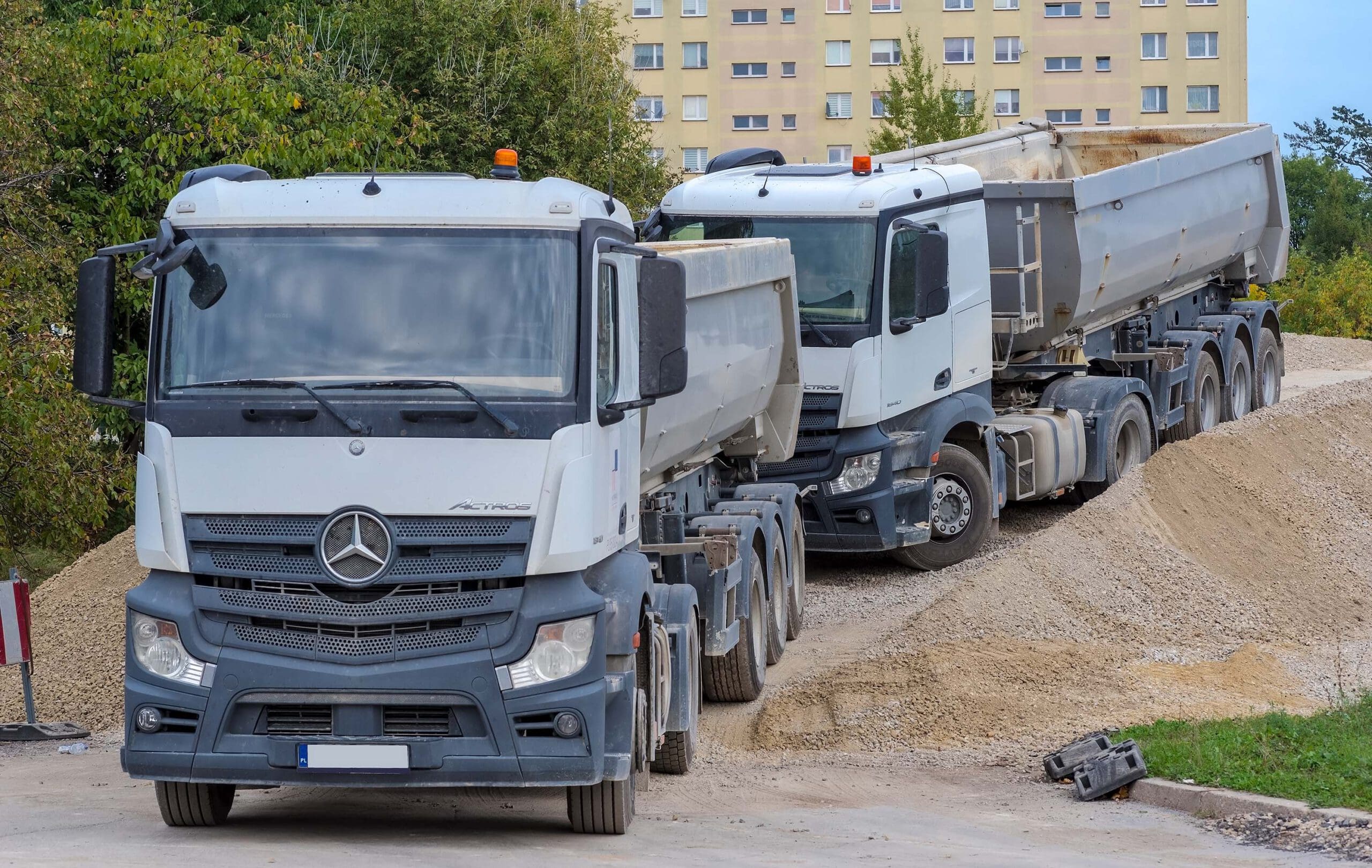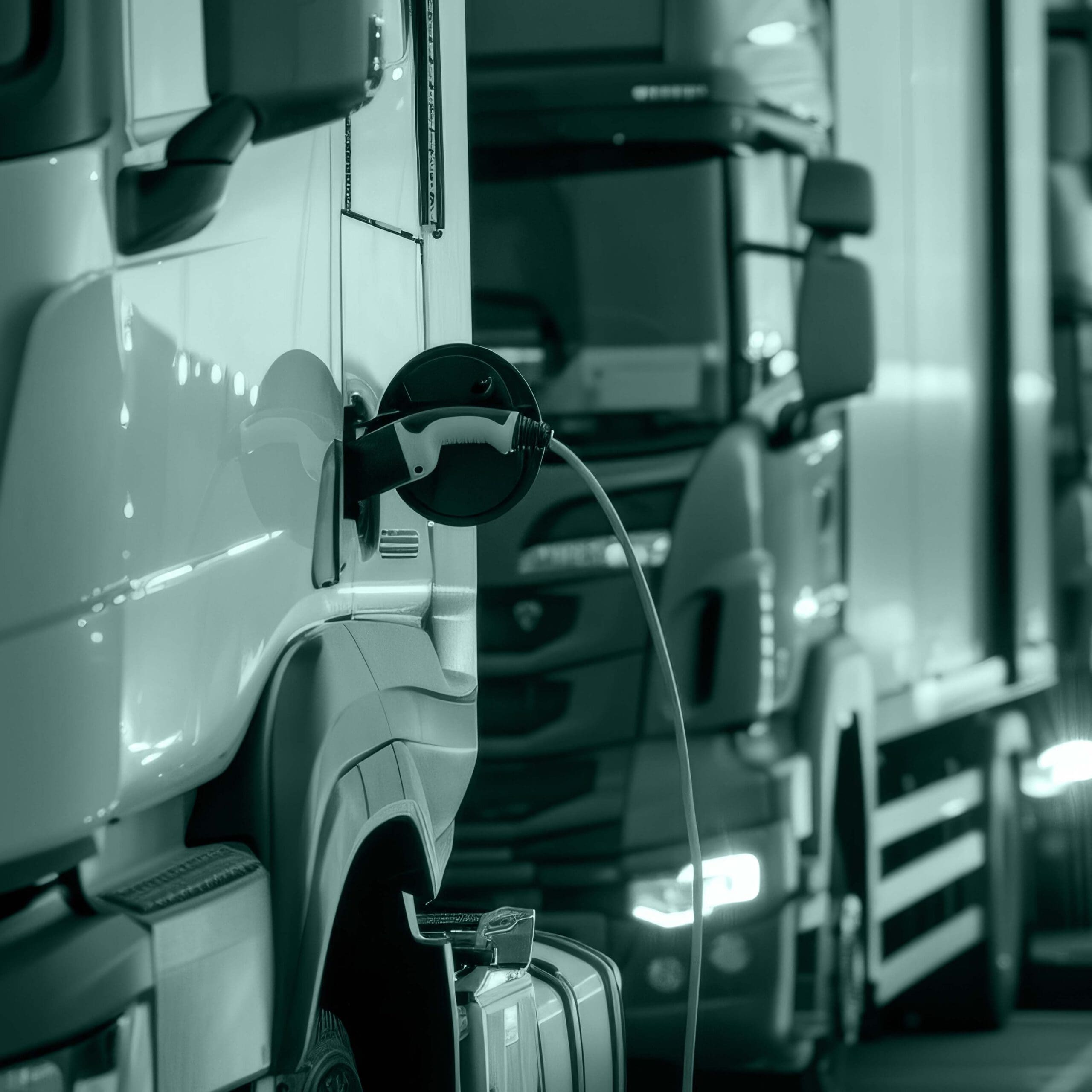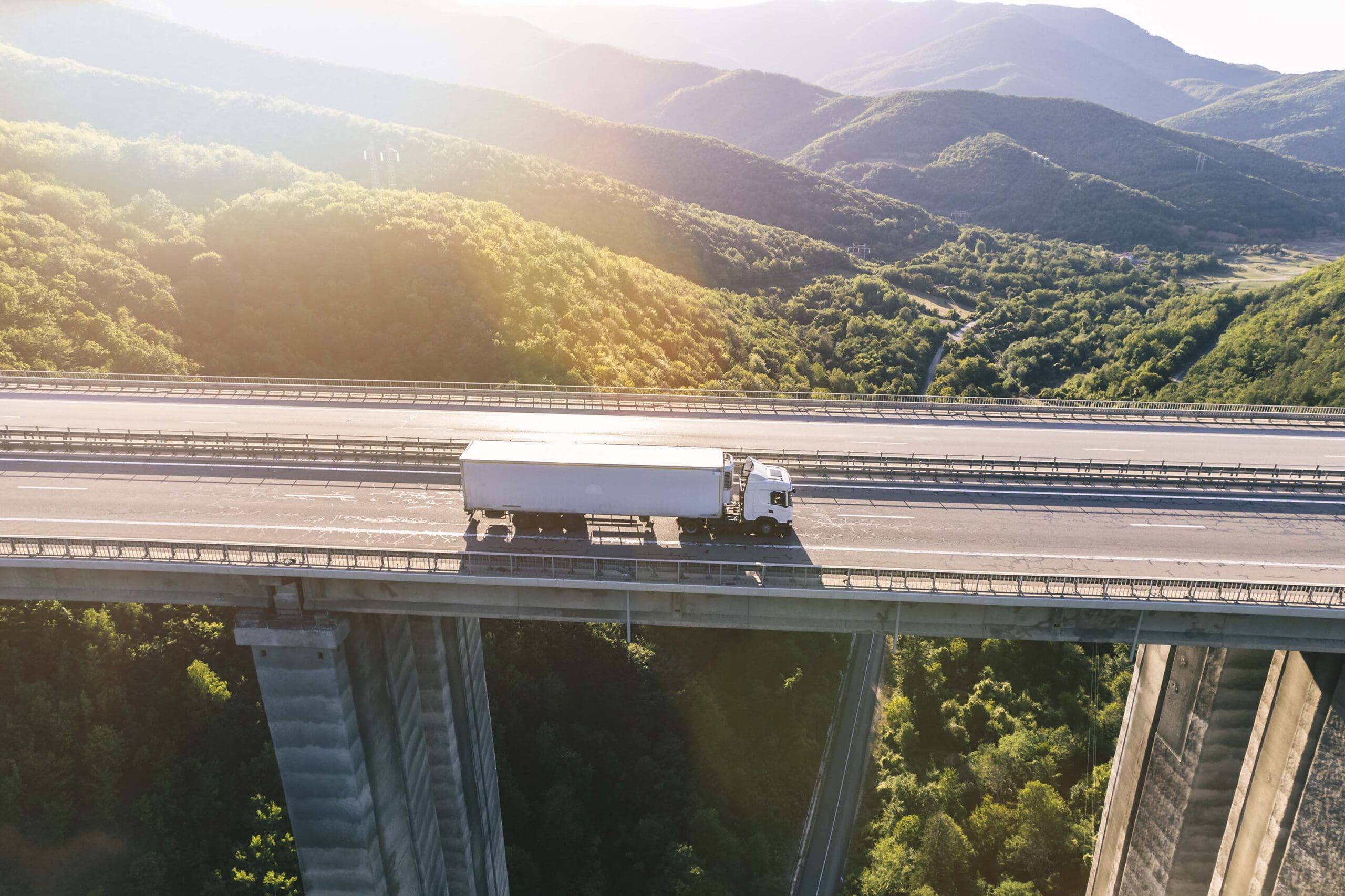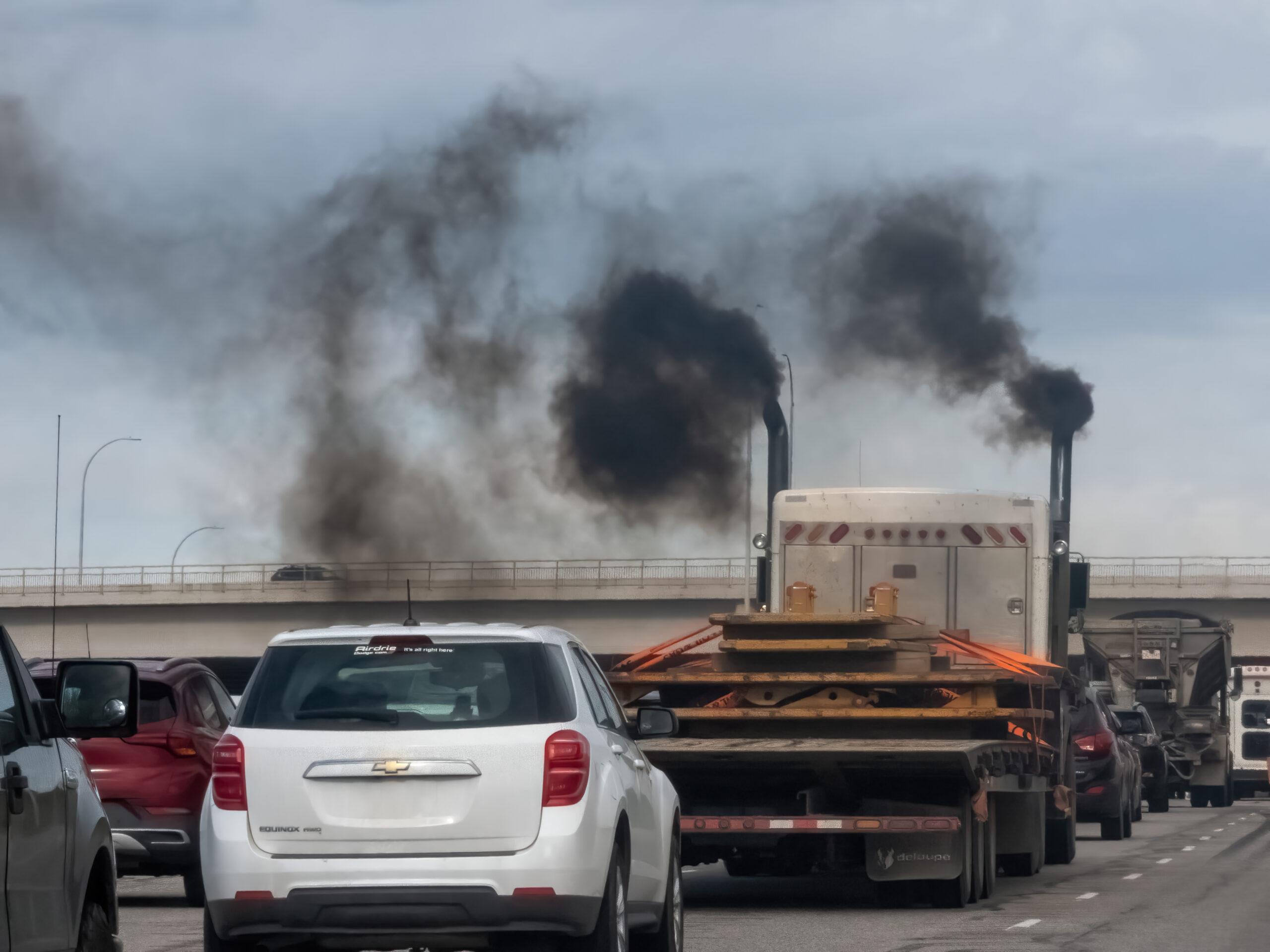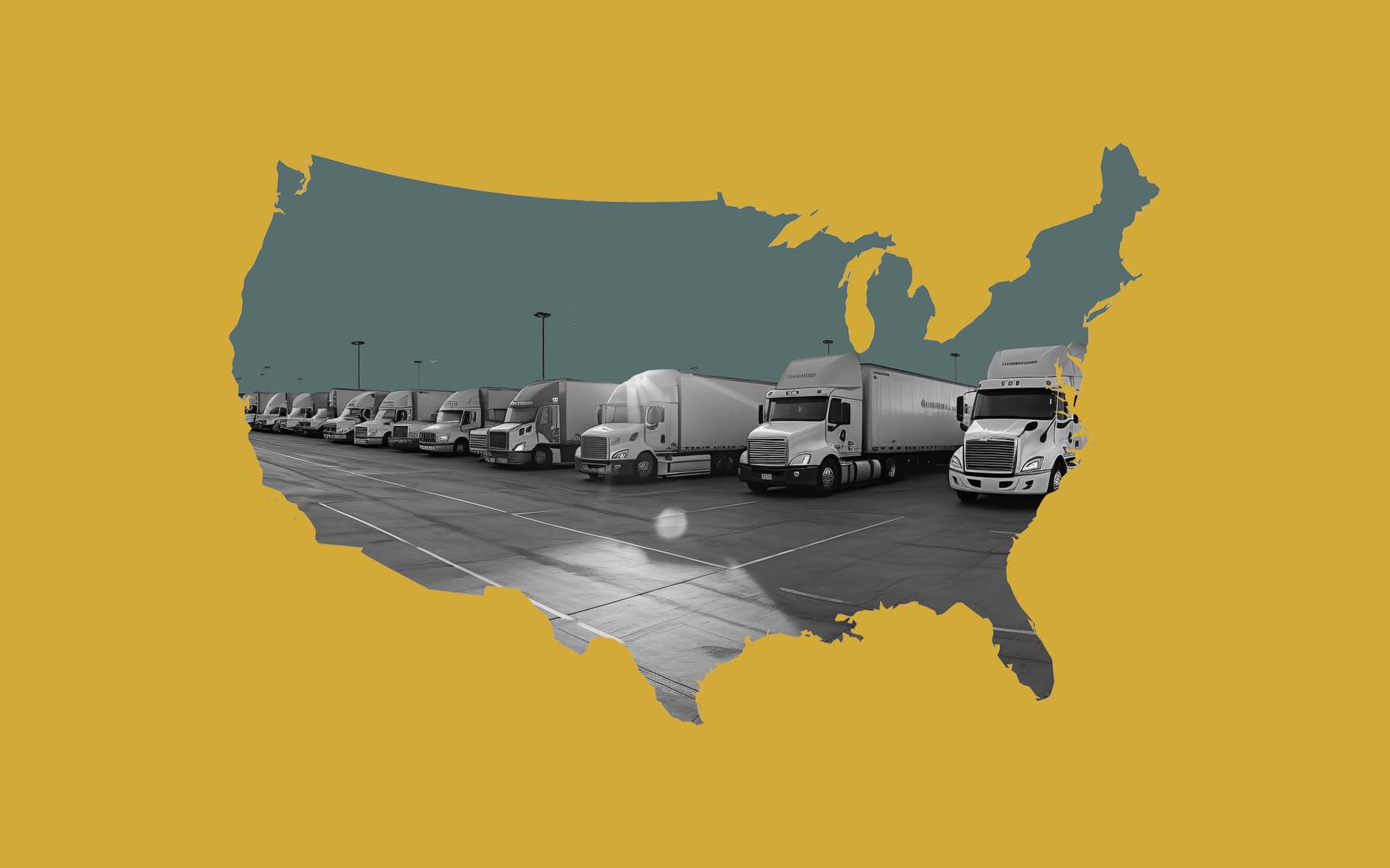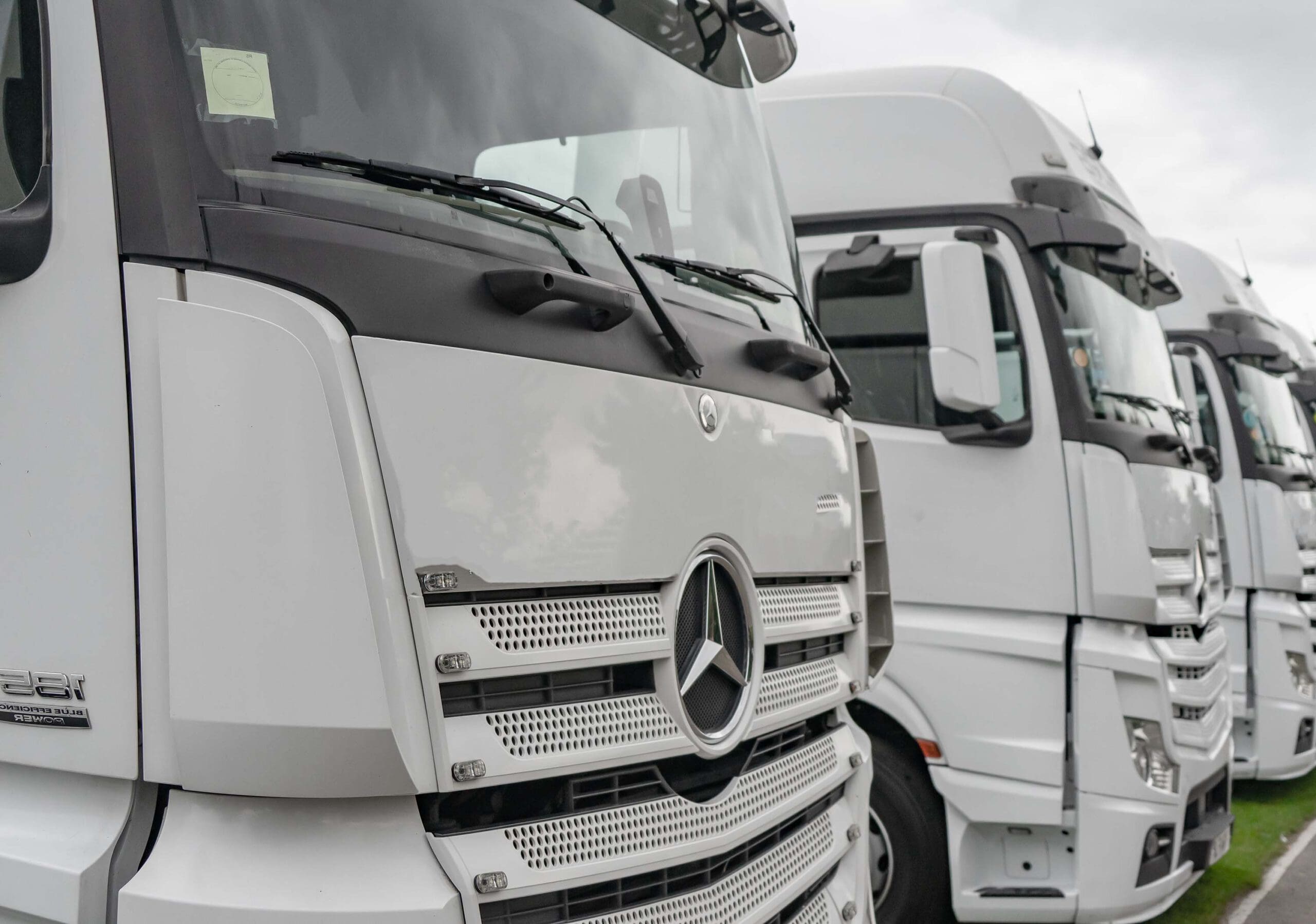
Daimler Truck claims to work “for all who keep the world moving.” It postures as a modern, forward-looking company. But there’s nothing modern about fossil fuels. Even though the German auto giant signed the Paris Agreement it’s making little headway on the electric transition—and it’s not moving fast enough. The numbers don’t lie: In 2024, 0.88% of the company’s sales were electric.
Company Name
DaimlerHeadquarters
Leinfelden-Echterdingen, Germany.Brands Owned
Reported net sales in 2024
Reported net profits in 2024
Trucks sold in 2024
of sales were electric trucks
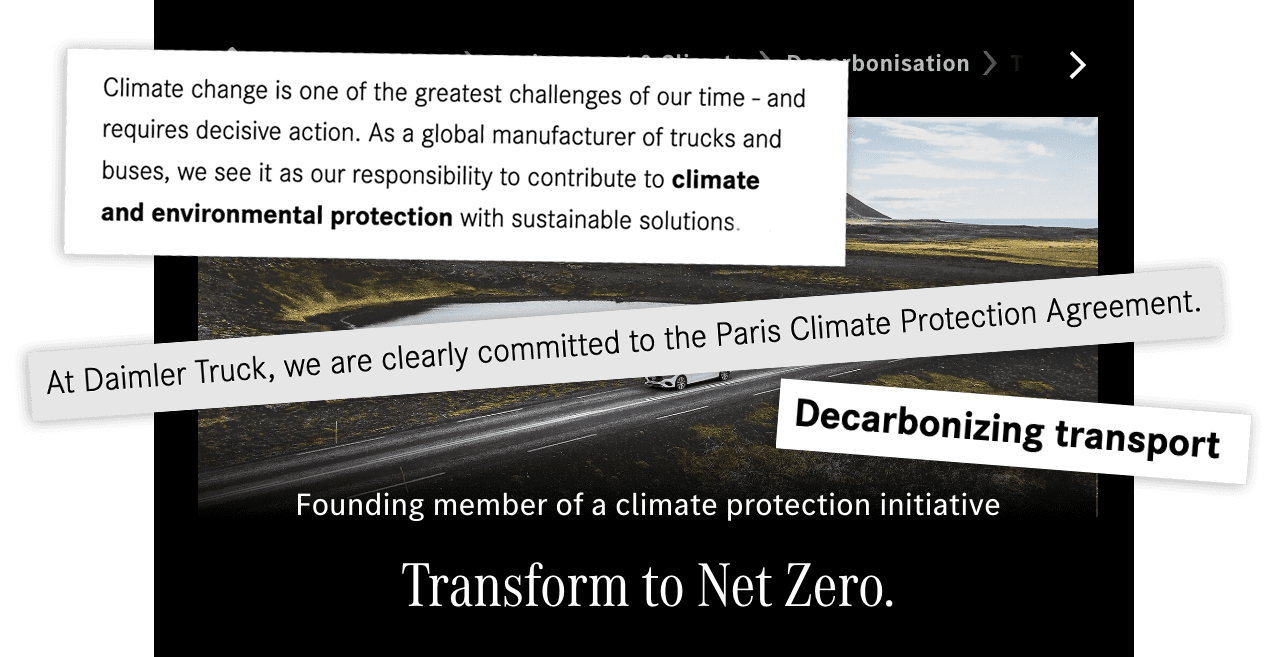
Excerpts from Daimler website.
Daimler: Drive the industry forward
Daimler says it wants to avoid bridging technologies that enable progress but don’t lead to CO₂-neutral transport. We couldn’t agree more. However, Daimler is dragging the transition. It’s moving too slow to hit the zero-emission targets we desperately need to reach. It also claims electric trucks don’t work for long distances, and says charging infrastructure can’t handle an electric revolution. These are all excuses.
Electric trucks are coming. They represent the only viable solution to our growing health, climate, and economic crises. Daimler has the resources it needs to lead a just transition from toxic diesel to clean, affordable electric trucks. It’s time to stop talking and start driving change.
